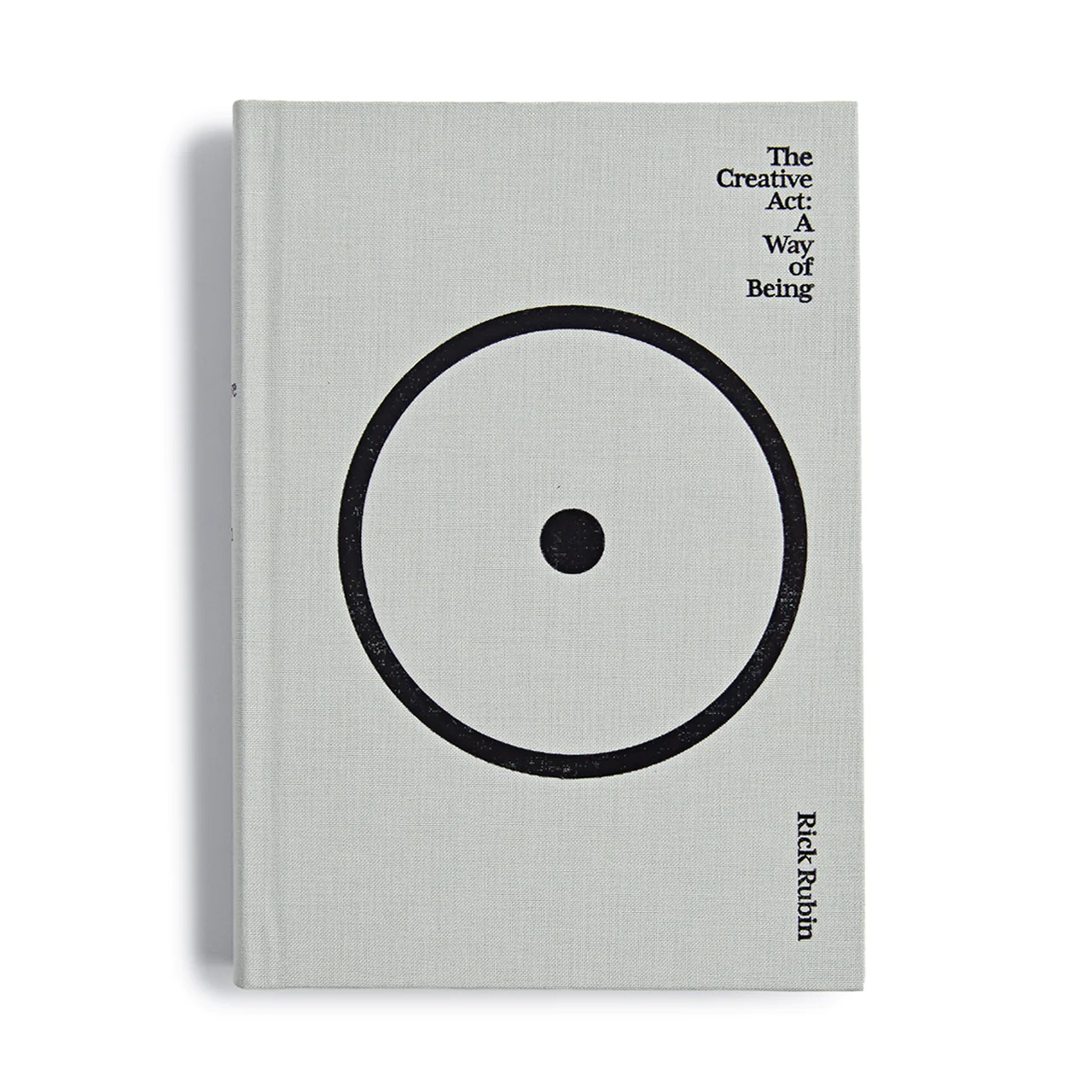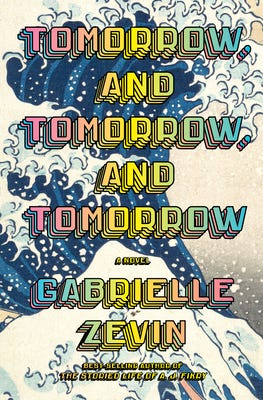Hello! On this year’s last edition of Double Take, I’m sharing my favorite books of the year that got me to think about people and the world differently. It’s a mix of fiction, inspiration, biography, and self-help/psychology - guaranteed to make an enjoyable downtime for the holidays (or ignite new inspirations for the New Year).
As always, thank you for being a part of this newsletter. The AI series will return in the new year with “pricing AI products”. What other content do you want to see more of?
1. The Creative Act
This beautiful, spiritual book about creativity has become one of my favorite books, ever. Rick is infamous for “production by reduction”. There’s not one wasted word in his book. Every sentence is a new insight that I find myself wanting to highlight each one. I think there’re many similarities in spirit between Rick Rubin and Steve Jobs, in that they both have a distinct precision to their opinions, are relentless in simplifying things to their essence, and have conviction to their taste.
The Creative Act is truly a way of living: making yourself open to the Source of ideas, seeing the world deeply through innocent eyes, training yourself to see the awe behind the obvious. This book has a permanent place on my desk. I’d flip through it often and learn something new each time. (Bonus, I’ve also been loving Rick’s podcast Tetragrammaton, where he has deep conversations with other creatives on their creative process.)
The creative energy exists in the journey to the making, not in the act of constructing. Rarely if ever do we know the grand intention, yet if we surrender to the creative impulse, our singular piece of the puzzle takes its proper shape.
The source material that we build our creative moment with is like the cloud. It combines differently every time it comes back. Perhaps it’s the familiar, coming back in an unfamiliar form. Or maybe it’s something unknown that we didn’t realize we were looking for, a missing piece in a puzzle that has no end.
Art is confrontation. It’s a healthy practice to approach our work with a few accepted rules, starting points and limitations as possible.
Innocence brings forth innovation. A lack of knowledge can create more openings to break new ground.
When flowing, keep going. Remain in the energy of this rarefied moment for as long as it lasts. Our schedules are set aside when these fleeting moments of illumination come.
2. Tomorrow, and Tomorrow, and Tomorrow
The only fiction on this list, is a complicated story about two childhood friends who bonded over video games and made successful video games together. This book is worth its hype and is obviously going to be turned into a movie. It takes you on a journey through the thrill of creating with a creative soul-mate, the complexities introduced in a relationship after massive success, and the parallel between video games and real life. The characters are flawed, the story is unpredictable, and the writing is witty and beautiful. I couldn’t put it down!
This life is filled with inescapable moral compromises. We should do what we can to avoid the easy ones.
She had just turned twenty. Everyone’s work is basic and uninteresting at twenty.
There is a time for any fledgling artist where one’s taste exceeds one’s abilities. The only way to get through this period is to make things anyway.
3. Elon Musk
Many have mixed views about Elon, and this book is fair in capturing the complexity of his multiple dimensions. It also made me realize how often media can be misleading. We don’t have to be compelled to make conclusions on a person. You can very much choose to take what’s valuable to improve yourself and discard the rest. Anyway, the stories in here are wild, and I felt inspired by some of the extreme-ness in his approach. It gets the impossible done doesn’t it? If you’re an ambitious builder, there’s a ton to learn here, such as Elon’s “algorithm”, what metrics matter, risk taking, and innovation.
“Question the requirements. Make them less wrong and dumb, because all requirements are somewhat wrong and dumb. And then delete, delete, delete.” - Elon
“If a timeline is long, it’s wrong.” - Elon
“My main regret,” Elon answered, “is how often I stab myself in the thigh with a fork, how often I shoot my own feet and stab myself in the eye.” - Elon
His preferred buzzword was “hardcore.” Discomfort, he believed, was a good thing. It was a weapon against the scourge of complacency.
The explosion of Starship was emblematic of Musk, a fitting metaphor for his compulsion to aim high, act impulsively, take wild risks, and accomplish amazing things—but also to blow things up and leave smouldering debris in his wake while cackling maniacally.
4. How to Know a Person
This book is as philosophical as it is practical. It’s about how to truly see people, enrich your relationships, and understand yourself better in the process. There are a ton of witty insights and moving stories that opened my eyes to a refreshed way of seeing others to make them feel seen and understood. I’ve found myself more aware in my interactions with people in my life - family and friends, acquaintances and strangers, and feel more love and compassion. A perfect read to start a new year.
Wise people don’t just possess information; they possess a compassionate understanding of other people. They know about life.
Above almost any other need, human beings long to have another person look into their face with loving respect and acceptance.
“How do I become a better person?” The way we attend to others determines the kind of person we become. If we see people generously, we will become generous, or if we view them coldly, we will become cold. - Parker J. Palmer
5. The Dip
“The Dip” is the long slog between starting and mastery. This quick read by Seth Godin gave me a clarified way of thinking about when to keep pushing through vs. when to quit. Quitting smart is better than getting stuck in a cul-de-sac (total dead end). Quit or be exceptional. Average is for losers.
The real success goes to those who obsess.
The focus that leads you through the Dip to the other side is rewarded by a marketplace in search of the best in the world.
If you fail to become the best in the world, it’s either because you planned wrong or because you gave up before you reached your goal.










